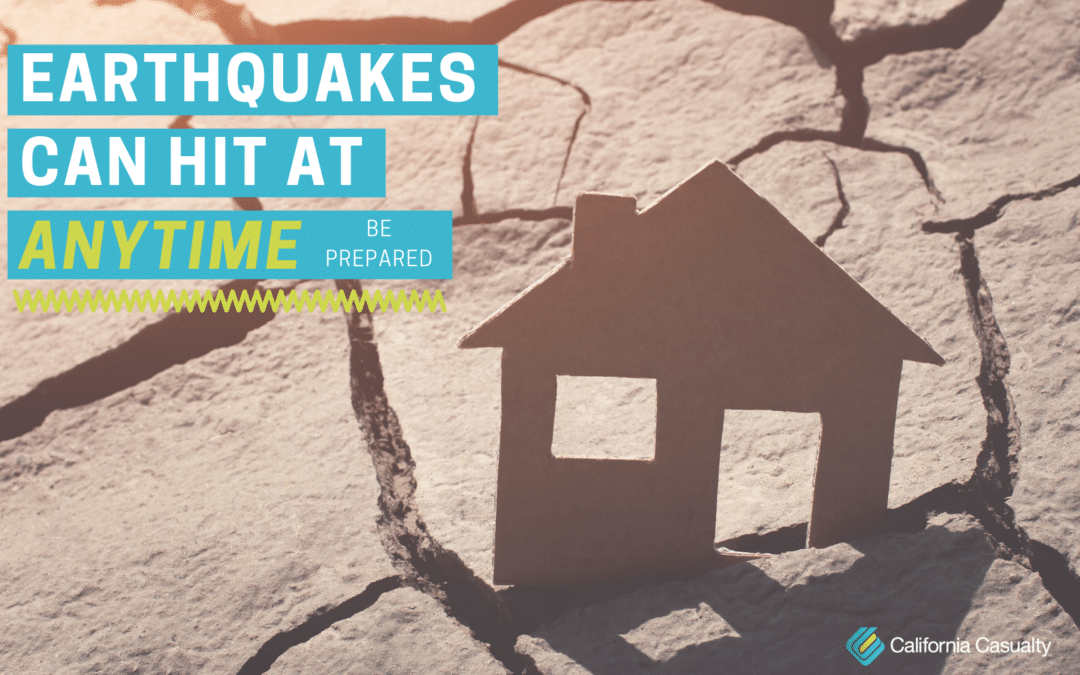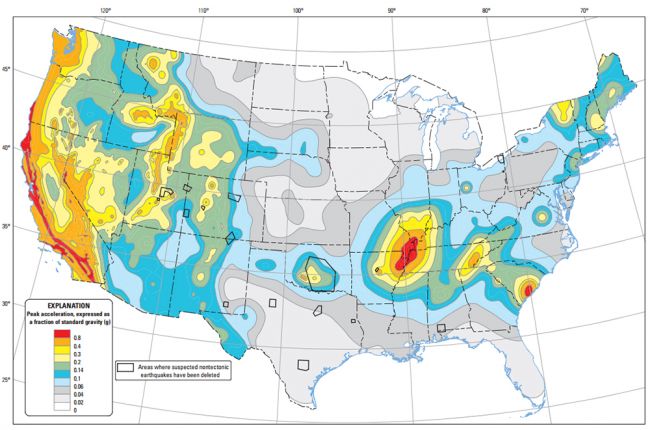The recent large earthquakes in Southern California are a reminder to always be earthquake-ready.
Earthquakes come on suddenly, with very little warning. They can be a sharp jolt followed by the ground shaking and cracking, or waves rolling across the ground.
Earthquakes can hit anywhere at any time, and while the West Coast is considered “earthquake country,” the U.S. Geological Survey warns that earthquakes have been registered in every state in the union, with special seismic hazards for areas encompassing the western-third of the nation, and areas extending from Missouri and Illinois to most of the Eastern Seaboard.
After an earthquake strikes many are often left disoriented and full of adrenaline –psyche and security shaken as much as their house. Post-quake your home or apartment may look damage-free, but there can be many hidden dangers.
After checking your family and others for injuries, here are key steps you need to take to ensure your safety:
- Check for gas and water line leaks. Know where the shutoff valves are if you smell gas or detect water leaking to prevent fires and water damage.
- Be aware of downed power lines.They can still carry a dangerous current.
- Inspect chimneys and brick areas for cracks. If cracked, they could send dangerous debris down on you or others.
- Check water heater and furnace vents. If they have become separated, it could send dangerous carbon monoxide into the home.
- Watch for electrical sparking or the smell of burning wire insulation. This could lead to a fire. Unplug any broken lights or appliances and turn off power at the main fuse box if you detect an issue.
- Clean up spilled medicines, drugs or harmful chemicals. Bleach, turpentine, hazardous garden supplies, etc.
- Don’t drink from faucets or other unprotected water sources. Wait until given the okay from your municipality or utility, because they could be contaminated.
Always Plan Ahead
Before an earthquake, or other natural disaster hits, you should always have a plan. Here are some tips to help you and your family prepare:
- Develop a family communication plan and “meet-up” location if you become separated
- Have your first aid kit fully stocked
- Prepare an emergency kit with: water, medicines, food, money, other important documents, etc.
- Have basic emergency supplies gathered all in one place: flash lights, batteries, blankets, a radio, lighters or matches, cell phone chargers, extra clothes
- Be sure to have coverage insurance.
If you have comprehensive coverage with your auto insurance, your vehicle is covered for damage from falling debris and other impacts from earthquakes.
However, earthquake damage is not covered under your homeowners or renters insurance policy, and less than 20% of Americans have purchased a policy. That means most people whose property suffers losses from a temblor will be paying out of pocket or relying on federal assistance and loans for recovery.
You can be prepared; California Casualty provides earthquake insurance as an endorsement to home owners policies in California, Illinois, Kentucky, Missouri, Oregon and Rhode Island. We also offer earthquake coverage through our partner, GeoVera Insurance Company, in California, Oregon and Washington. Learn more and get a quote at 877.652.2638 or visit www.calcas.com/earthquake-insurance.
For more information visit:
- Graduation – When to Remove Your Child from Your Auto Policy - May 18, 2023
- How to Prevent Catalytic Converter Theft - May 17, 2023
- How Much Does Home Insurance Cost? - May 17, 2023


